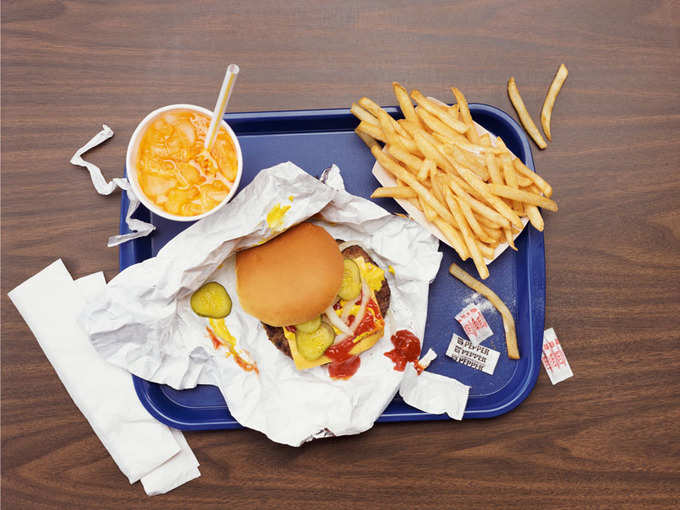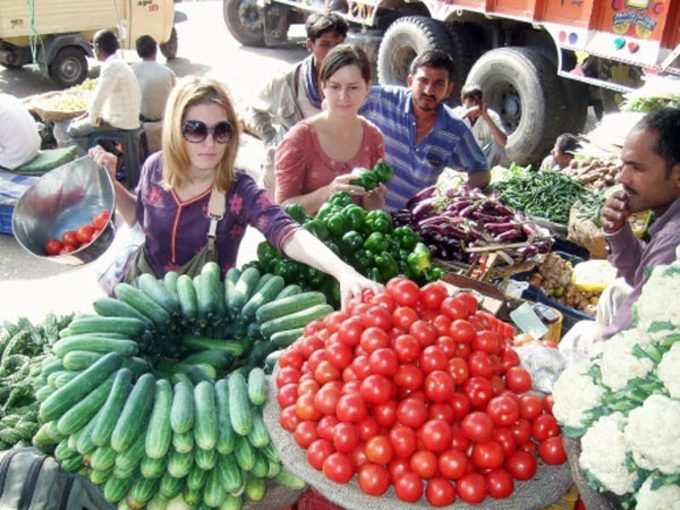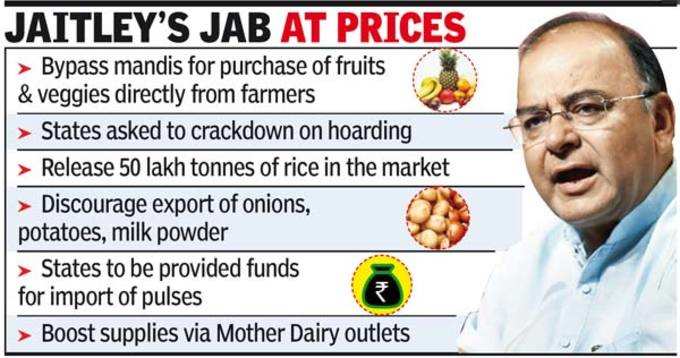 NEW DELHI: The government on Tuesday stepped up its efforts to tame rising food prices through a slew of measures meant to increase the supply of rice, potatoes, onions, fruits and vegetables in local markets and announced a crackdown on hoarders.
NEW DELHI: The government on Tuesday stepped up its efforts to tame rising food prices through a slew of measures meant to increase the supply of rice, potatoes, onions, fruits and vegetables in local markets and announced a crackdown on hoarders."Additional quantities of rice will be released into the market. We will import pulses, if there is a shortage. Cereals and edible oil can be imported if states feel there is a shortage,"
Though the government is monitoring the price movement of 22 commodities, a spurt has been noticed in four-five food products. The government's move to announce the steps is aimed at managing prices before they start spiraling and have political implications.
The UPA government was often blamed for its slow response, propelling
Fears of weak monsoon and its adverse impact on food production are driving up prices, especially of vegetables. In addition, the violence in Iraq has triggered fears of a spike in oil prices, which can push up inflation further.

While the government imposed a minimum export price of $300 a tonne on onions to discourage shipments out of the country, a similar levy on potatoes will be initiated by the commerce department, Jaitley said.
On June 11, TOI was the first to report that the government was going to impose a minimum export price to augment supplies in the domestic market even as it was tracking the prices of potatoes, non-basmati rice and skimmed milk powder.
The

Similarly, 50 lakh tonnes of rice will be released in the open market through state governments to cool prices. Food Corporation of India has abundant stocks but has in the past been accused of holding on to rice and wheat, even as prices soared in the local market.
With regard to pulses and edible oil, states will be given a line of credit to directly import them to meet local demand, Jaitley said.
"The meeting also reviewed the steady increase in retail price of milk and decided to consider withholding export incentives, currently in force," an official statement said.